
Sciences & Technology
The Spirit of change
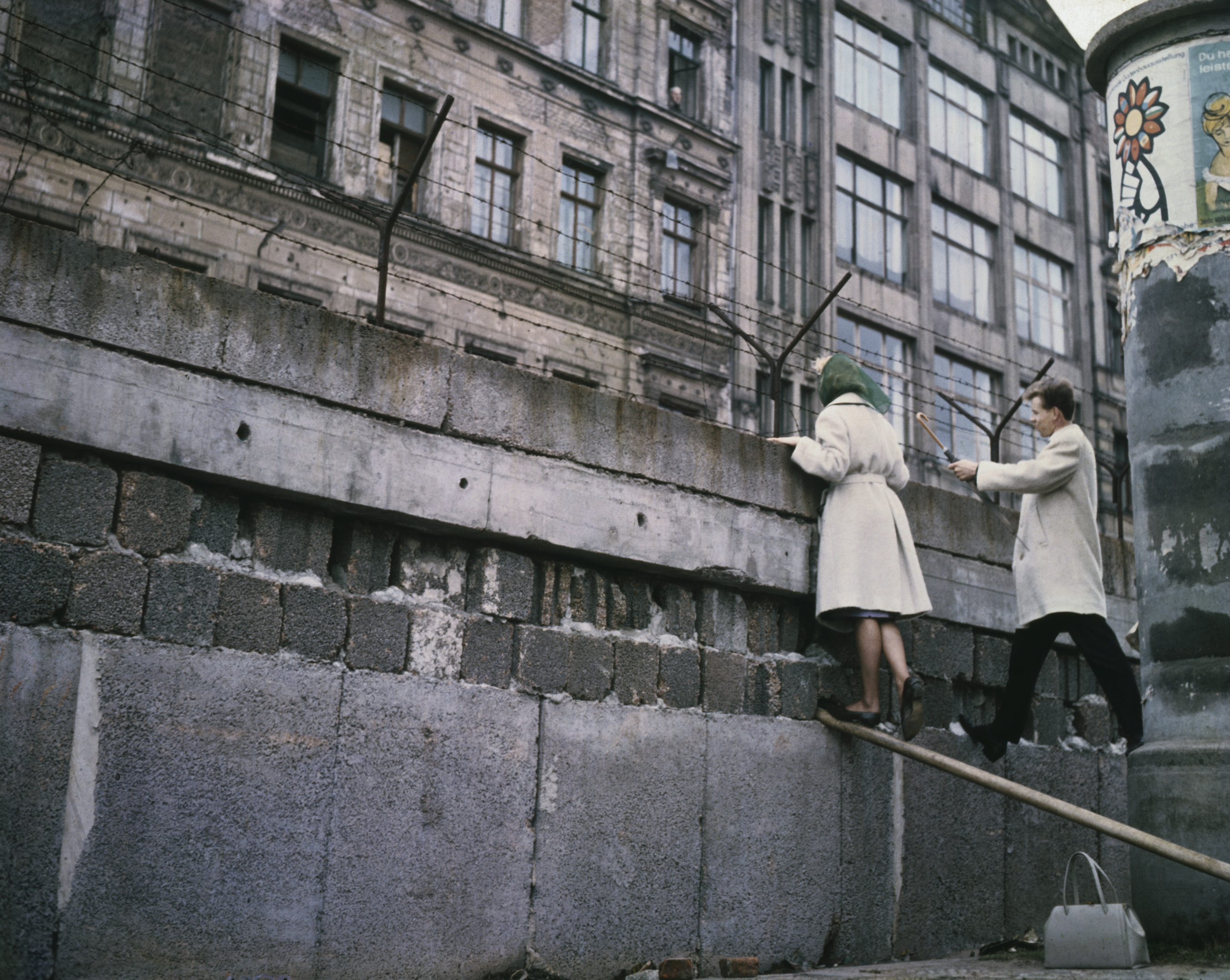
Two scientists, who today are colleagues, were on opposite sides of the Berlin Wall when it came down 30 years ago. Here they reflect on 1989 and what it meant
Published 8 November 2019
Seventeen-year-old East Berliner, Ute Roessner, had just arrived in Moscow with her Year 12 class when she found herself with her friends in a long queue outside Red Square’s very first McDonalds.
It was an early bittersweet taste of the wave of capitalism that would sweep many East Germans off their feet, but ultimately land them in debt.
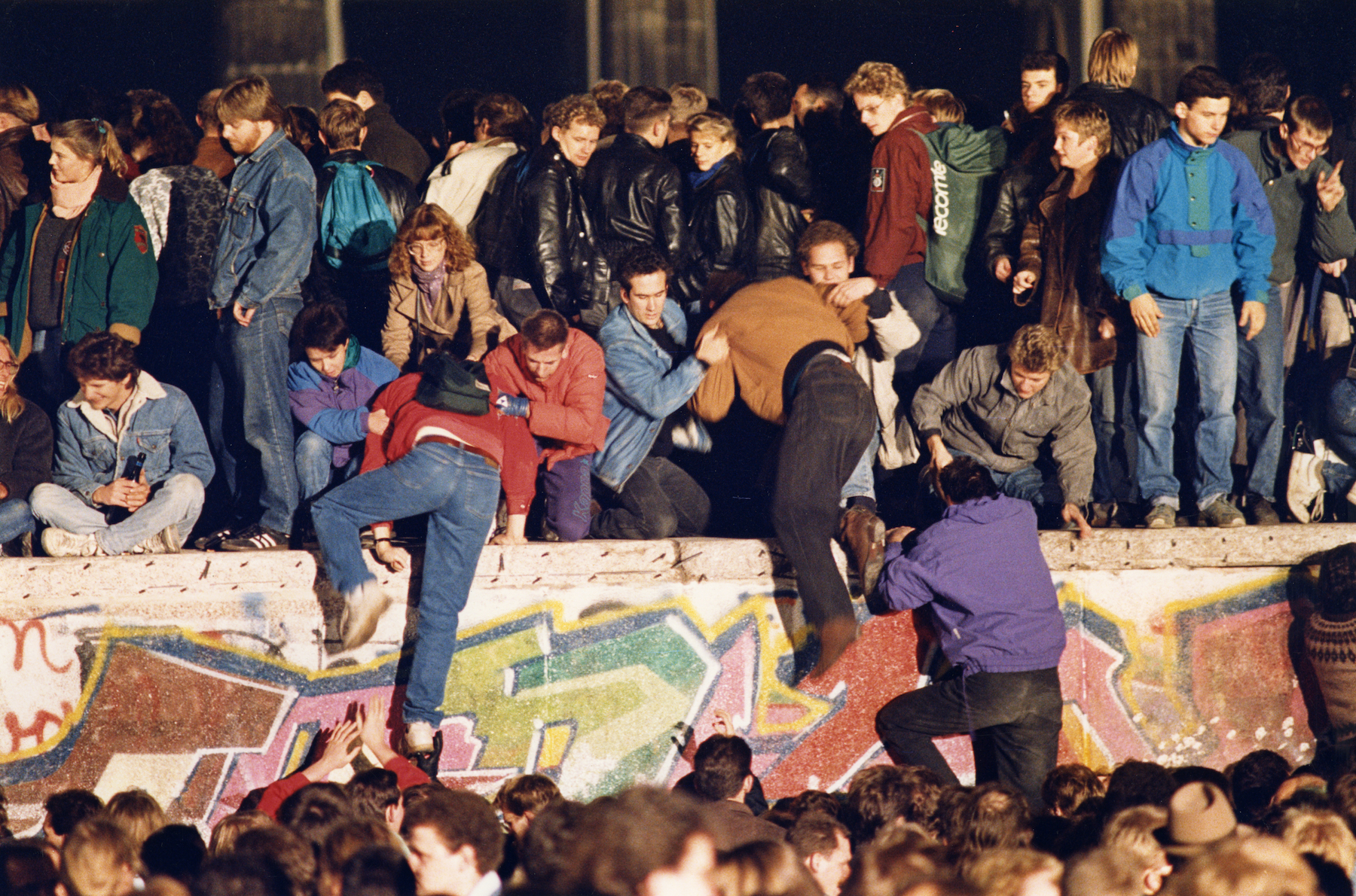
Her end-of-year school trip had been planned for November 9 and while she’d seen reports on West German TV that the Berlin Wall was coming down, it was still too surreal to believe.
She remembers catching the train at 7pm to Berlin with her classmates, where it took the boys in the group rushing ahead and breezing through Checkpoint Charlie to prove the Wall was actually down.
“They shouted to us ‘We were on the other side’,” remembers Professor Roessner. “We all said ‘Bullshit’.

Sciences & Technology
The Spirit of change
An hour later there would be a million people along the Wall, climbing over it and sitting on top of it as they celebrated the pending fall.
In Western Germany in the north city of Kiel, eighty kilometres away from the border with the East, 25-year-old Uta Wille was doing her PhD in Chemistry, and watching on TV as a swarm of people flooded through the Berlin checkpoints.
“It was Thursday evening, the day before my brother’s birthday,” she says. “There was real disbelief that it was happening. There had been demonstrations for many months and people in the East travelling to West German embassies in Hungary or Czechoslovia hoping to be able to get out into West Germany.
“You need to remember that the Wall didn’t come down immediately; it happened over days and weeks.
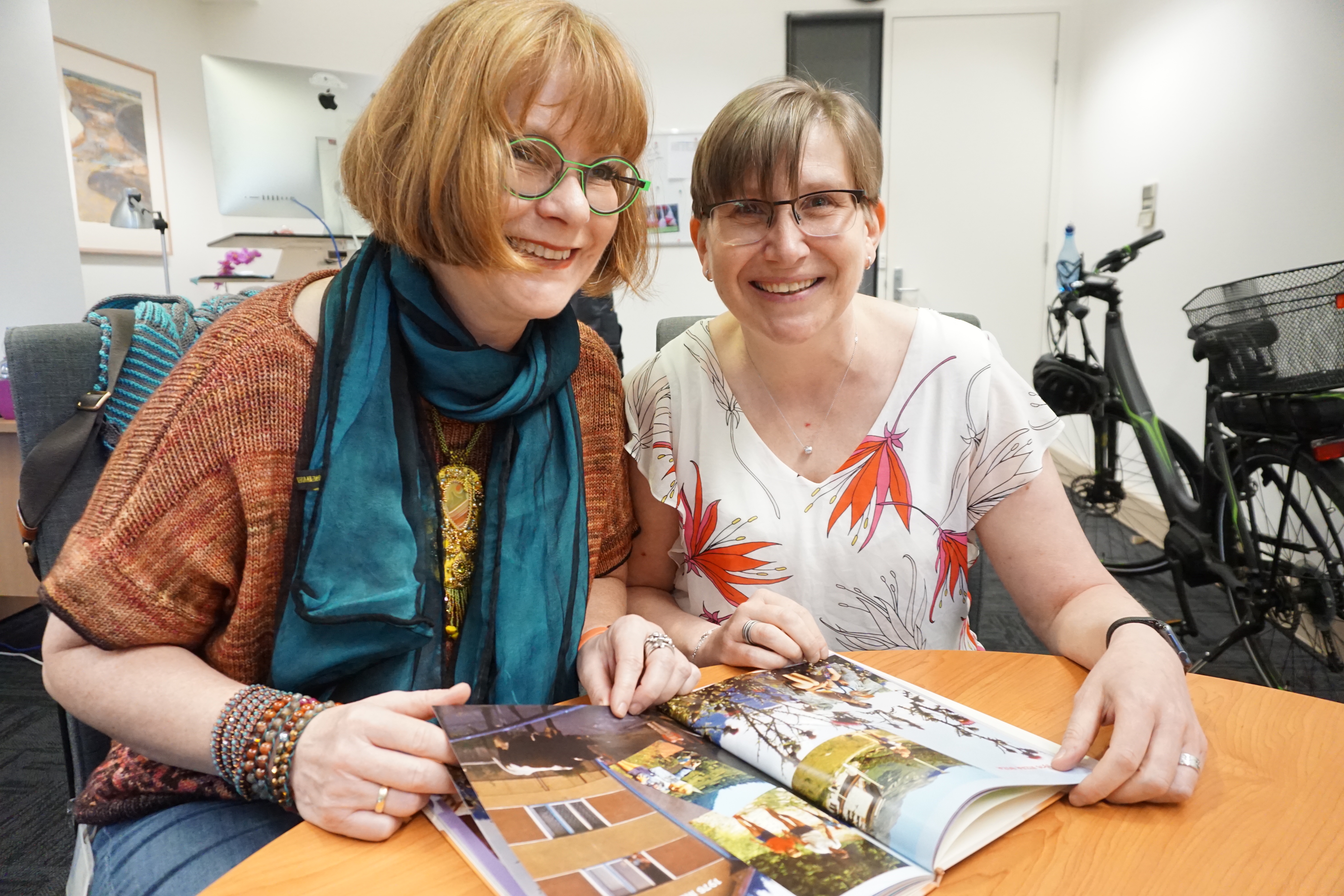
“In the beginning, it was simply people from the East Germany crossing the border, by car or even walking, just to see how it was and then trotting back.”
After 28 years, the Berlin Wall, the World’s strongest symbol of the Cold War finally crumbled when an East German official, Günter Schabowski, apparently messed up the announcement that restrictions on travel visas were being lifted.

Sciences & Technology
Don’t ask women leaders to act like men
Confronted by a growing mob, a second official, the chief officer on duty at the Bornholmer Street checkpoint, then opened the border crossing with the other gates soon following.
For 25-year-old Uta Wille, today a Professor in the School of Chemistry at the University of Melbourne, the dismantling of the Wall was huge relief. Being in West Germany meant she was always living under the shadow of the Cold War and the threat of a nuclear confrontation.
“I could actually sleep again at night,” she remembers. “I was living only 80 kilometres away from the Wall and if there had been a conflict we would’ve gone immediately. So, the breaking up of the Wall was a sign that the Cold War was finally over.”
But for Professor Roessner, now Head of the University of Melbourne’s School of BioSciences, there was little to celebrate.
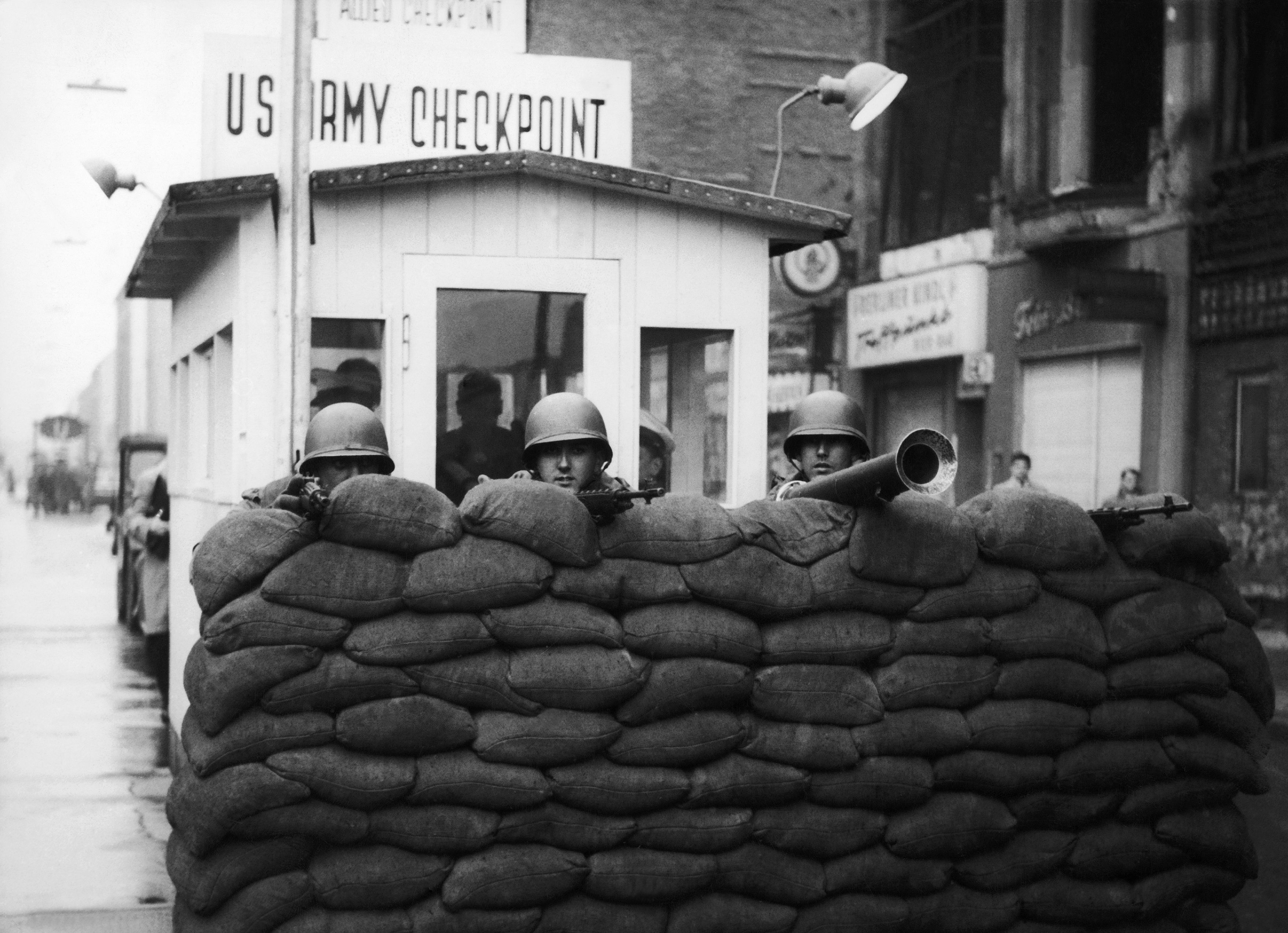
Growing up in Dessau, her family had moved to East Berlin where her father was the Deputy Minister of Heavy Plant Construction and her mother a dentist. She was in the last year of school and life was good.
While more than 5,000 East Berliners managed to breach security and cross the wall between 1961 and 1989, she had no desire to leave the East.

Sciences & Technology
The Nobel Prize winner who built a whole new field of chemistry
“In the East, no one was rich, but we had a very good life,” she says. “I was at a loss. My country was gone – where I was born didn’t exist anymore.
“Communism – you can discuss a lot about it – but I think as an ideology it’s not a bad one. We were all treated the same and all given the same opportunities.
“Out of all three European communist countries, I think East Germany was the richest, so, yes, it was a big loss to see it go.”
Some other former East Germans soon came to agree. Today, the economic toll of reunification on the East, especially in terms of a devastating increase in unemployment, is widely acknowledged.
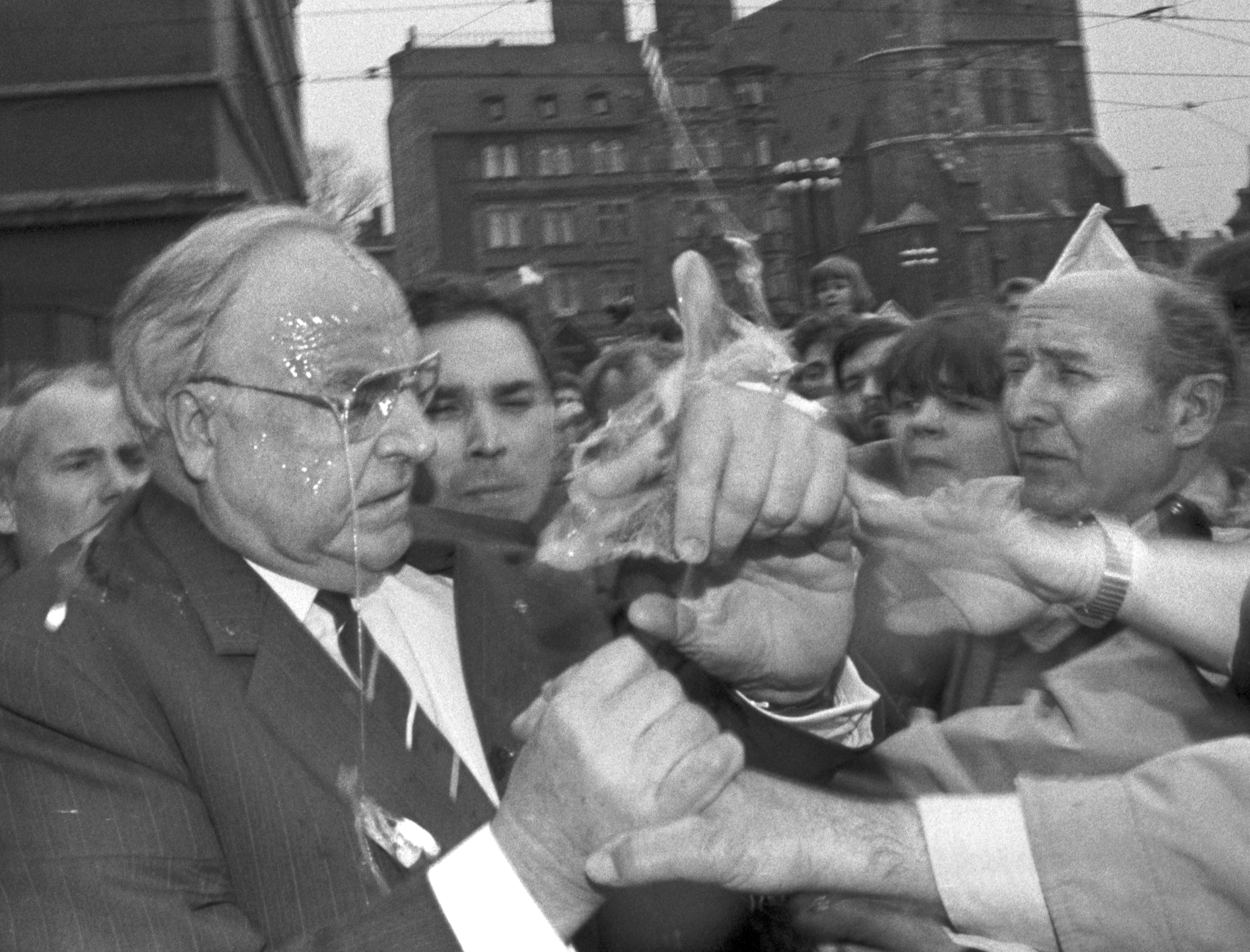
“For a few months, everyone finally could get to consume what they were after, things like the chocolate, the coffee and all these things, but suddenly no one had their jobs anymore,” says Professor Roessner.
Professor Roessner’s father left before the government changed, managing to make the leap into industry.
The young, smart and educated Ute had received a perfect score on her matriculation exams (equivalent to VCE), but her dream to be a doctor was in tatters.

Sciences & Technology
The shared evolution of the Tasmanian tiger and the wolf
“I didn’t get to university because my father was a Red Sock,” she says. “They said ‘No’ to me even though I had a hundred per cent score because I came from a family involved with the party and government. So, they did exactly the same as the previous government, just going the other way,” says Professor Roessner.
“It was a very crazy time. A lot of people in my Year 12 class didn’t get into university as they had planned.”
Her family complained to the University but a career as a doctor had palled by then and she became a nurse instead, eventually working for a Catholic Hospital before choosing to study biochemistry at a then newly-formed University, University of Potsdam.
Having met, a world away ‘down under’ in the Faculty of Science, University of Melbourne, Professor Roessner and Professor Wille are now close friends and colleagues, writing grant proposals together, sitting on the same committees together, co-supervising a PhD student, and causing some confusion with their similar names.
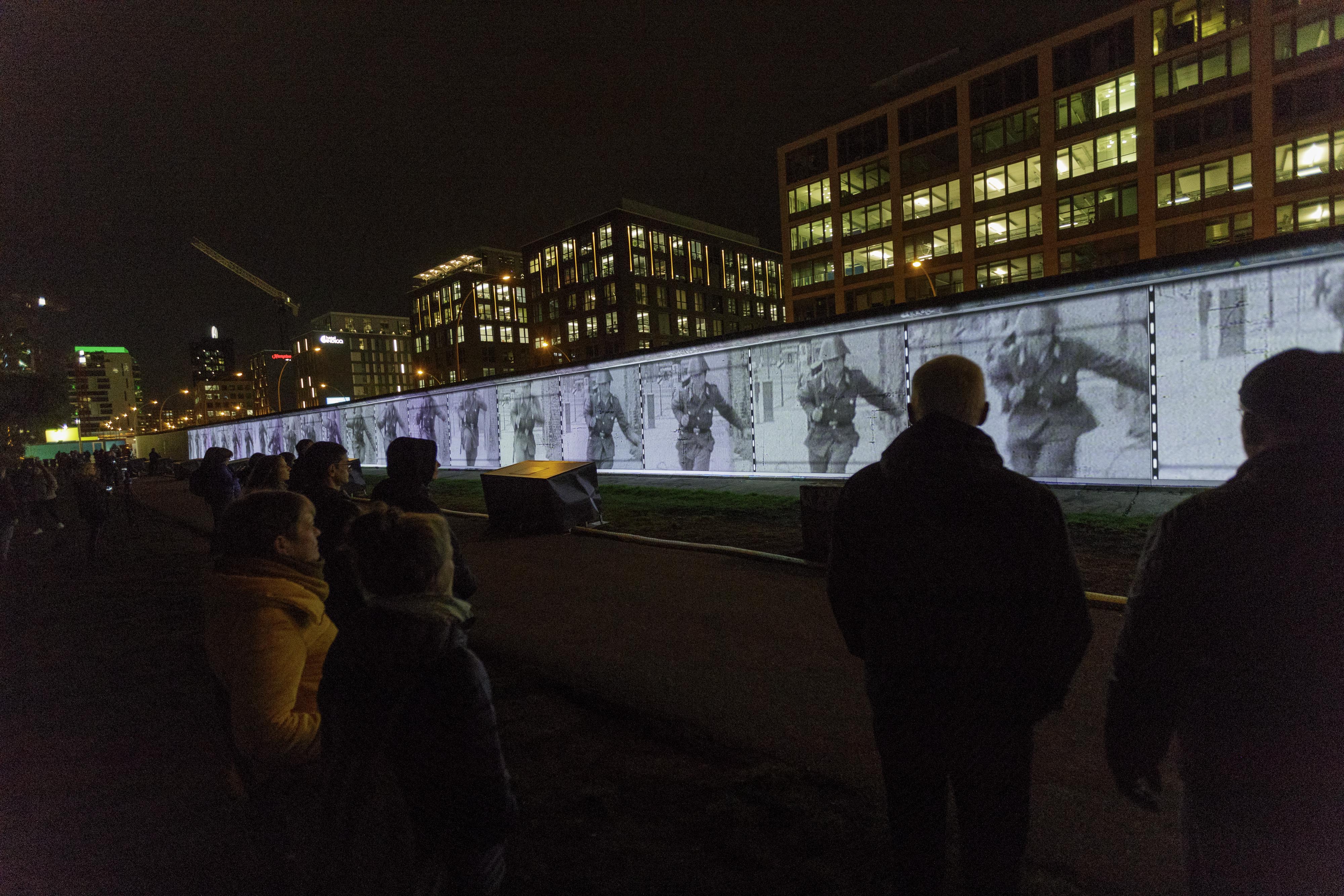
‘Uta and Ute’ is a well-known old name in German and means ‘Prosperity and Riches’.
Despite never having shared their stories with each other and growing up across the Wall from each other, both had good things to say about the former Germany Democratic Republic (East Germany).
“There was an extensive network of childcare that allowed women to work in the GDR,” says Professor Wille. “Everyone was working, mums and dads. All this was dismantled following the West German model that mums were to stay home to look after the children.

Sciences & Technology
Probing Earth’s deep and ancient secrets
“People also moved away from the countryside, leaving the old ones. People were fleeing to where the jobs were.”
Both have visited Germany since they migrated to Australia with Professor Wille noting the rise in Neo-Nazism, particularly in the East, which she said is ‘truly frightening.’
Professor Roessner agrees there’s ‘a lot of negativity around’, but making a play on the word ‘Ossie’ (someone who has grown up in East Germany, as opposed to Wessie), she says: “I’m an Aussie now, I couldn’t have gone any more East.
“The general population here in Australia is very modest and humble and I find a lot of similarities with East Germany. So, for me, I’m at the right place in the world.”
Banner: West Berlin couple talking to relatives in East Berlin across the wall. Getty Images